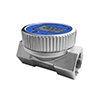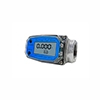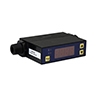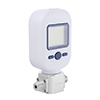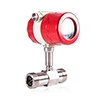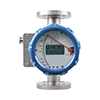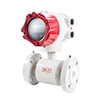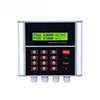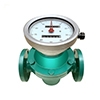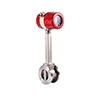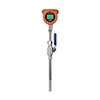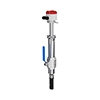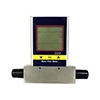As a key device for measuring the flow rate and volume of liquids, gases, or vapors, flow meters play a vital role in various industries. Whether in industrial production, chemical manufacturing, or municipal water supply and environmental monitoring, flow meters provide reliable data support to ensure efficient and safe operation of the system. With the advancement of technology, flow meter types on the market continue to increase, from simple mechanical flow meters to high-precision digital flow meters, and the prices of various types of products vary due to factors such as functionality, accuracy, measurement range, and durability. Therefore, it is important to understand the price list of different types of flow meters to choose the right product.
Tool shop will explore the use of flow meters, their importance in modern industry, and their wide range of applications in different fields. With a thorough understanding of these, you will be in a better position to choose the most cost-effective flow meter for your business needs. In addition, Tool.com will list the price ranges of some common flow meter types to help you make an informed purchasing decision. Whether you're an engineer needing to precisely control your manufacturing process or an environmentalist concerned with fluid monitoring, this article will provide you with valuable reference information.
Tool Price List
Next, we will discuss the use of flow meters in depth to help readers better understand how to effectively operate these devices and ensure accurate flow data.
Flow Meter Use Methods
The use of a flow meter varies depending on the type of meter, but the basic steps are generally the same. First, the installation process is a critical step in using a flow meter. During installation, it is important to ensure that the flow meter mates accurately with the piping to prevent leaks or measurement errors. The installation location of the flow meter also needs to be chosen based on the characteristics of the fluid (e.g., fluid flow rate, temperature, and pressure). For example, some flow meters are very sensitive to the direction of fluid flow and must be installed in strict accordance with equipment instructions.
Secondly, calibrating and setting up the flow meter is also one of the key steps. After the flow meter is installed, it needs to be initially calibrated to ensure the accuracy of the measured data. Many modern digital flow meters come with an auto-calibration feature that allows for quick calibration and adjustment of settings before use. Users can set the flow meter's units, alarm values, automatic data logging, and other features according to their specific needs to ensure that the device can work properly under different conditions.
When in use, attention should also be paid to the maintenance and repair of the flow meter. Regularly check the sensors and piping connection parts of the device to prevent the accumulation of impurities or air bubbles to affect the measurement results. In addition, some flow meters may require periodic cleaning or replacement of parts to ensure the long-term stability and accuracy of the device.
The Importance of Flow Meters
Flow meters are critical in many industrial sectors because they provide accurate data to support the control and management of fluids. By monitoring the flow rate and volume of fluids in real-time, companies can optimize production processes, reduce energy consumption, and ensure the quality of their products. For example, in chemical plants, flow meters can help monitor the flow rates of different chemicals to ensure precise control of the reaction process. In the oil and gas industry, flow meters are used to monitor flow rates in oil and gas pipelines, ensuring safe operations and reducing environmental risks.
Flow meters are also important for the environmental sector. In wastewater treatment plants, flow meters monitor the volume of water being treated to ensure compliance with discharge standards. Additionally, in municipal water supply systems, flow meters can help monitor water consumption to prevent waste and leakage. These data not only help optimize resource management but also provide strong support for energy saving and emission reduction.
Overall, flow meters play a central role in all kinds of industrial and environmental monitoring, and their accuracy and reliability are directly related to the efficiency and safety of the system. With the continuous progress of technology, flow meters in the future application prospects will be more broad.
Flow Meter Application Areas
- Industrial Production: In the manufacturing industry, flow meters are used to monitor the flow of liquids and gases to ensure the stability and efficiency of the production process. For example, food processing plants need to accurately measure the amount of water, milk, or other liquid ingredients used, while chemical plants need to monitor the flow rates of different liquid or gaseous chemicals.
- Oil and Gas: The extraction and transportation of oil and gas relies on the accurate monitoring of flow meters. Flow meters measure the flow rate in oil and gas pipelines to ensure the safety of the transportation process and prevent leaks. In addition, flow meters are used in the oil refining process to monitor the flow of various types of liquids to ensure productivity.
- Water Treatment and Supply Systems: Flow meters are essential for monitoring water flow in municipal water and wastewater treatment plants. Water supply systems rely on flow meters to monitor the delivery of water, ensure efficient pipeline operation, and minimize leaks. In wastewater treatment plants, flow meters help monitor the volume of wastewater being treated to ensure that it is being treated efficiently and by environmental standards.
- Energy Industry: In power plants, flow meters are used to monitor the flow of cooling water to ensure the stable operation of power generation equipment. In addition, in the field of new energy, such as wind and solar power generation process, flow meters are also used to monitor the flow of liquid to optimize the efficiency of energy conversion.
- Environmental Protection Monitoring: Flow meters are also indispensable in the field of environmental protection monitoring. For example, in the atmospheric monitoring station, a flow meter can be used to monitor the air quality analysis equipment in the gas flow, to ensure the accuracy of the data.
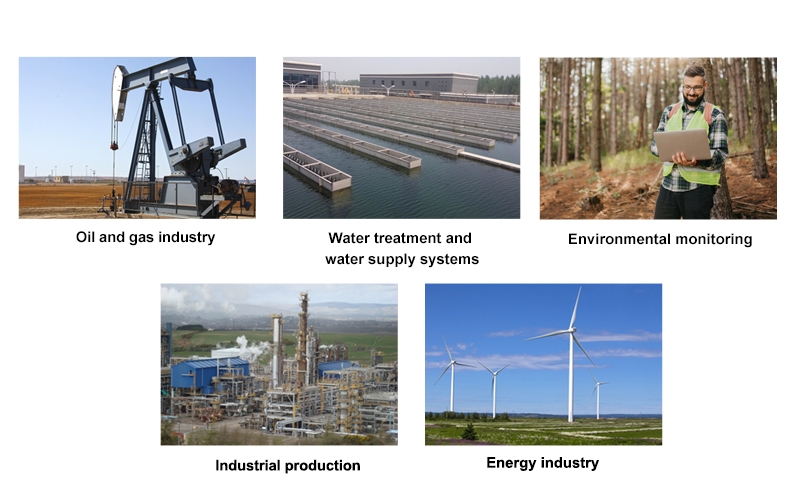
Flow meter as an important fluid monitoring tool, in the modern industry and environmental protection field plays an indispensable role. Through this article, we have learned about the use of flow meters, their importance, and their wide range of applications. From installation to calibration to maintenance, the correct use of flow meters not only improves the operational efficiency of the system but also ensures safety during operation. Different types of flow meters provide accurate fluid data to support production processes, helping to optimize resource use, reduce energy consumption, and minimize environmental impact.
When choosing a flow meter, in addition to considering its functionality and technical parameters, price is also an important factor. By referring to the price list of flow meters, users can choose the most cost-effective product according to their budget and needs. Whether it is a small business or a large industrial facility, flow meters can provide efficient and reliable solutions for fluid management. With the advancement of technology, the application of flow meters will be more intelligent in the future, bringing great convenience and benefits to more industries.

